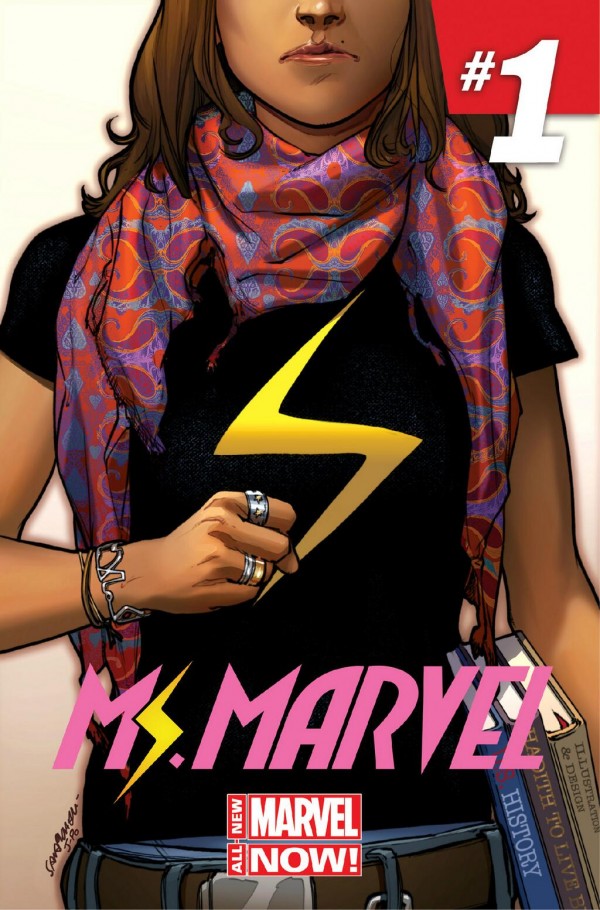Marvel turned a lot of heads this week with the announcement that its newest superhero will be a 16-year-old Muslim girl, Kamala Khan. Kamala is the daughter of Pakistani immigrants, lives in Jersey City—and can change her shape at will; with her newly awakened powers, she is taking the name Ms. Marvel.
The Ms. Marvel character has been around since 1968, and Khan is not the first to bear that title. The original Ms. Marvel was Carol Danvers, an Air Force major who acquired superpowers after an explosion caused her genes to be fused with those of an alien species, the Kree. Last year, Carol became Captain Marvel in the series of that name, written by Kelly Sue DeConnick and illustrated by Dexter Soy. And Kamala Khan takes on the mantle of Ms. Marvel because she is an admirer of Carol Danvers—a member of the Carol Corps.
“Captain Marvel represents an ideal that Kamala pines for,” writer G. Willow Wilson said in an interview with the New York Times. “She’s strong, beautiful, and doesn’t have any of the baggage of being Pakistani and ‘different.’”
Kamala sprung from a conversation between Marvel editors Sana Amanat and Steve Wacker. “I was telling him some crazy anecdote about my childhood, growing up as a Muslim-American,” Amanat said. “He found it hilarious.” The two started talking about the lack of female superheroes as well as superheroes from different cultures, and that got the ball rolling. When they invited Wilson, who is a convert to Islam, to write the comic, she jumped at the chance.
The comic ties in with an event in the larger Marvel universe, specifically the Inhumanity storyline: In last month’s Infinity #4, the Terrigen bomb was detonated over New York City, awakening dormant superpowers in a whole group of Inhumans. Kamala is one of these.
The character is at once dealing with a very specific situation—being a first-generation immigrant, negotiating the tricky divide between traditional family ways and the life of an American teenager—and something very universal, the need for teenagers to find their own identity and place in the world. For Kamala, this is complicated by her newfound superpower, which should make for an interesting story.
Amanat said she is prepared for some criticism: “I do expect some negativity,” she told the Times, “not only from people who are anti-Muslim but people who are Muslim and might want the character portrayed in a particular light.”
